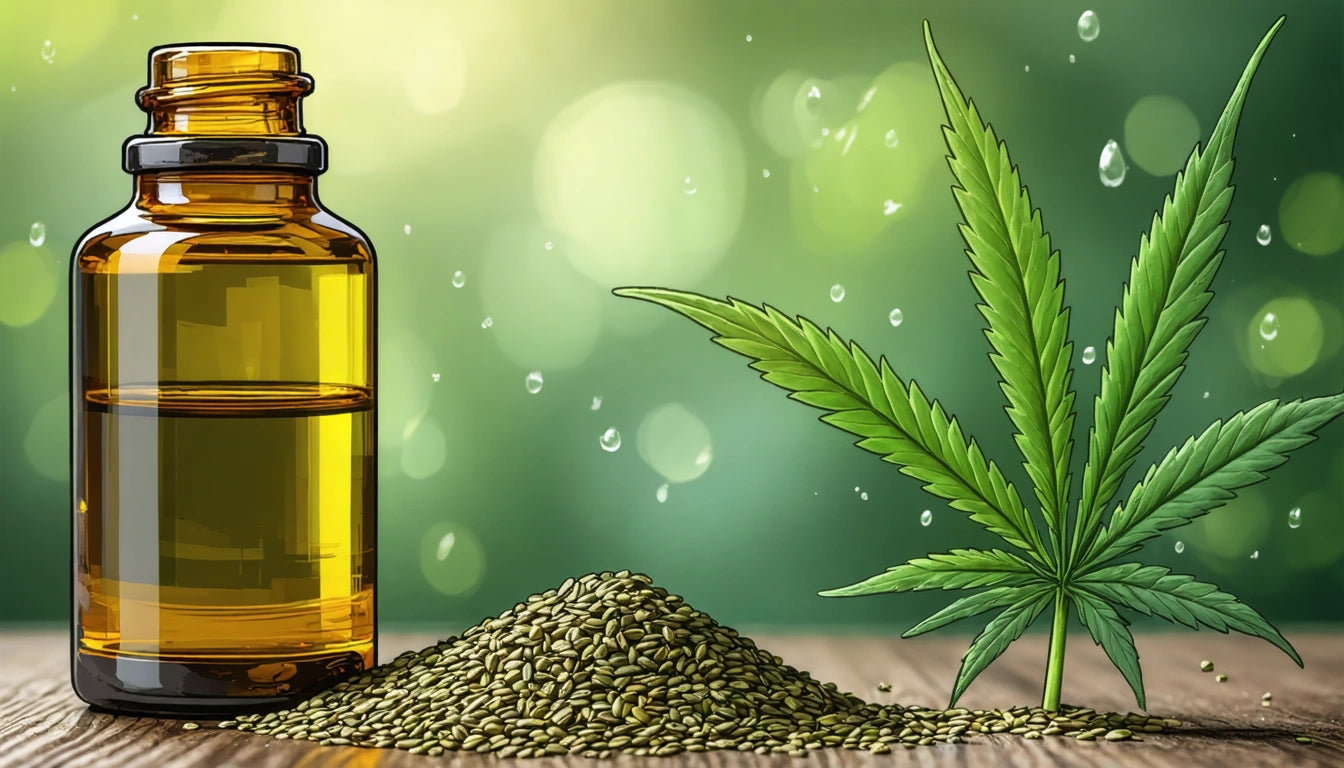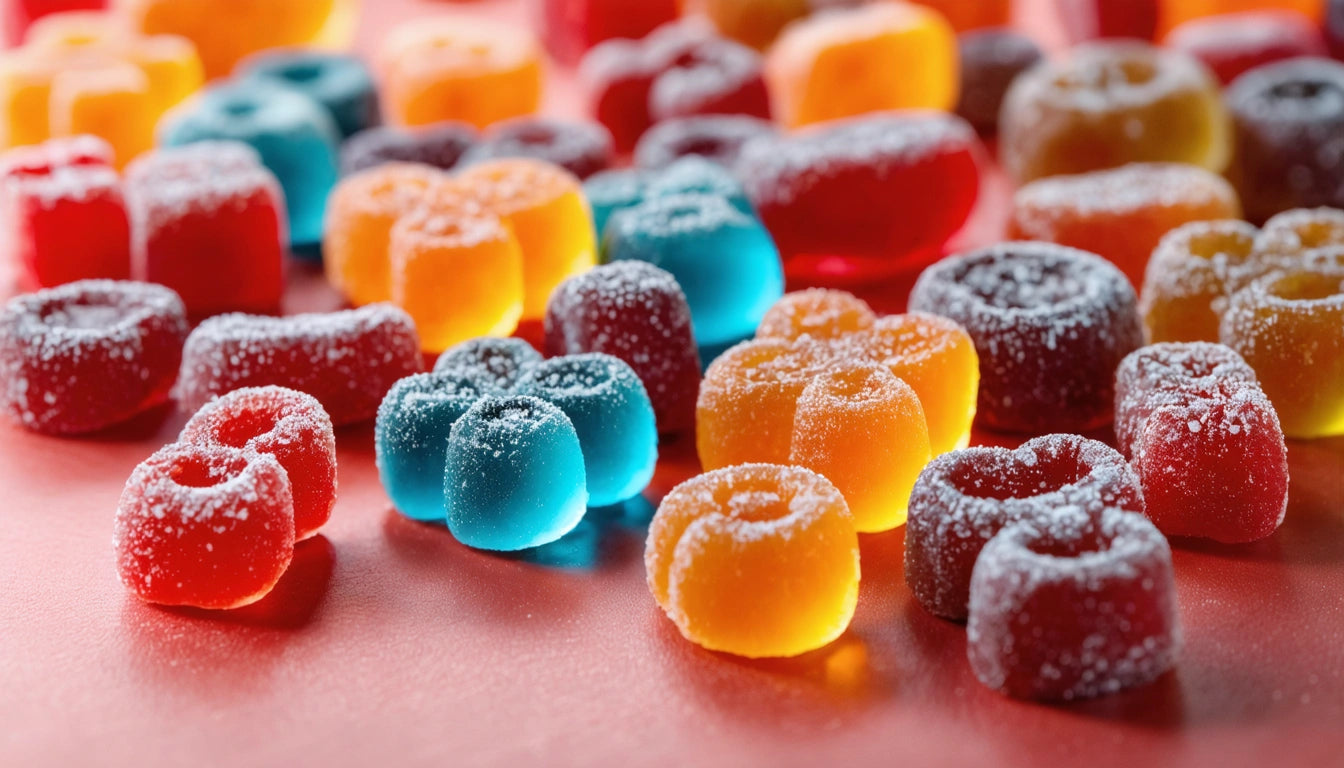Table of Contents
Understanding the Duration and Shelf Life of Hemp Products in Your System
Hemp products have gained significant popularity for their nutritional benefits and wellness properties. Whether you're consuming hemp seed oil, hemp hearts, or other hemp derivatives, understanding how long these products remain in your system and maintain their freshness is essential for optimal benefits. This comprehensive guide explores the duration of hemp products in your body and their shelf life when stored properly.
How Long Does Hemp Seed Oil Stay in Your System?
Hemp seed oil, derived from pressed hemp seeds, contains beneficial fatty acids but virtually no cannabinoids. Unlike CBD or THC products, hemp seed oil doesn't produce psychoactive effects and processes through your system differently.
Digestion and Metabolism
When consumed, hemp seed oil is primarily metabolized like other dietary oils. The body typically processes these oils within 24-48 hours as they pass through your digestive system. The beneficial fatty acids are absorbed into your bloodstream, where they support various bodily functions before being fully metabolized.
Since hemp seed oil contains negligible amounts of cannabinoids (less than 0.3% THC), it doesn't remain in your system in the way that cannabinoid-rich products do, as detailed in this comprehensive timeline of cannabis processing in the body.
Shelf Life of Hemp Hearts: Storage and Longevity
Hemp hearts, the soft inner part of hemp seeds, are highly nutritious but can be sensitive to environmental factors that affect their shelf life.
Typical Shelf Life
When stored properly, hemp hearts can last:
- Room temperature (unopened): 3-4 months
- Refrigerated: 6-12 months
- Frozen: Up to 12 months or longer
The high oil content in hemp hearts makes them susceptible to rancidity if exposed to heat, light, or oxygen. For accurate measurement of hemp hearts when cooking or preparing food, many culinary enthusiasts use precise digital scales that measure down to the gram to ensure consistent results in recipes requiring exact portions.
How Long Do Hemp Seeds Stay in Your System?
Hemp seeds themselves don't "stay in your system" in the way cannabinoids do. Instead, they're processed through digestion like other food products.
Digestive Processing
When consumed, the outer shell of hemp seeds (if not dehulled) provides fiber that passes through your digestive tract within 24-36 hours. The nutrients from the seeds are absorbed during digestion, with the beneficial compounds being utilized by the body over varying timeframes:
- Proteins: Broken down into amino acids and absorbed within hours
- Fatty acids: Metabolized over 24-48 hours
- Fiber: Passes through the digestive system in 1-3 days
Unlike cannabinoid-containing products, hemp seeds don't leave behind metabolites that can be detected in drug tests, as explained in this detailed article on detection windows.
Storage Best Practices for Hemp Products
Proper storage is crucial for maintaining the quality and extending the shelf life of hemp products.
Hemp Seed Oil Storage
Hemp seed oil is particularly sensitive to degradation. For optimal freshness:
- Store in dark glass bottles to protect from light
- Keep refrigerated after opening
- Ensure bottles are tightly sealed to prevent oxidation
- Use within 3-6 months of opening
According to this comprehensive guide on hemp seeds, proper storage significantly impacts both nutritional value and taste over time.
Hemp Seeds and Hearts Storage
For maximum longevity:
- Store in airtight containers
- Keep in cool, dark places (pantry for short-term, refrigerator or freezer for long-term)
- Protect from moisture and humidity
- Consider vacuum-sealing for extended storage
Similar principles apply to cannabis seeds, as detailed in this resource on cannabis seed viability.
Factors Affecting Detection and Shelf Life
Detection Variables
While hemp products with minimal THC don't typically result in positive drug tests, several factors can influence how quickly your body processes hemp-derived compounds:
- Metabolism rate
- Body fat percentage
- Hydration levels
- Frequency of use
- Overall health
For products containing trace cannabinoids, processing times may vary as outlined in this article on system duration.
Shelf Life Variables
Several factors affect how long hemp products remain fresh:
- Processing methods
- Packaging quality
- Exposure to air, light, and heat
- Presence of preservatives
- Initial quality of the product
Understanding these variables helps consumers make informed decisions about purchasing and storing hemp products for maximum benefit.
Maximizing Freshness and Potency of Hemp Products
To get the most from your hemp products, consider these practical strategies for extending shelf life and ensuring optimal quality:
- Purchase smaller quantities more frequently rather than bulk amounts that may degrade before use
- Look for products with nitrogen-flushed packaging that removes oxygen before sealing
- Transfer products to appropriate storage containers immediately after opening
- Label containers with purchase and opening dates to track freshness
- Perform regular sensory checks for signs of rancidity (off smells, bitter taste)
By understanding both how hemp products process through your system and how to properly store them, you can maximize their benefits and value. Whether you're using hemp for nutritional purposes or wellness benefits, proper storage and knowledge of processing timeframes ensures you get the most from these versatile plant products.











Leave a comment
All comments are moderated before being published.
This site is protected by hCaptcha and the hCaptcha Privacy Policy and Terms of Service apply.